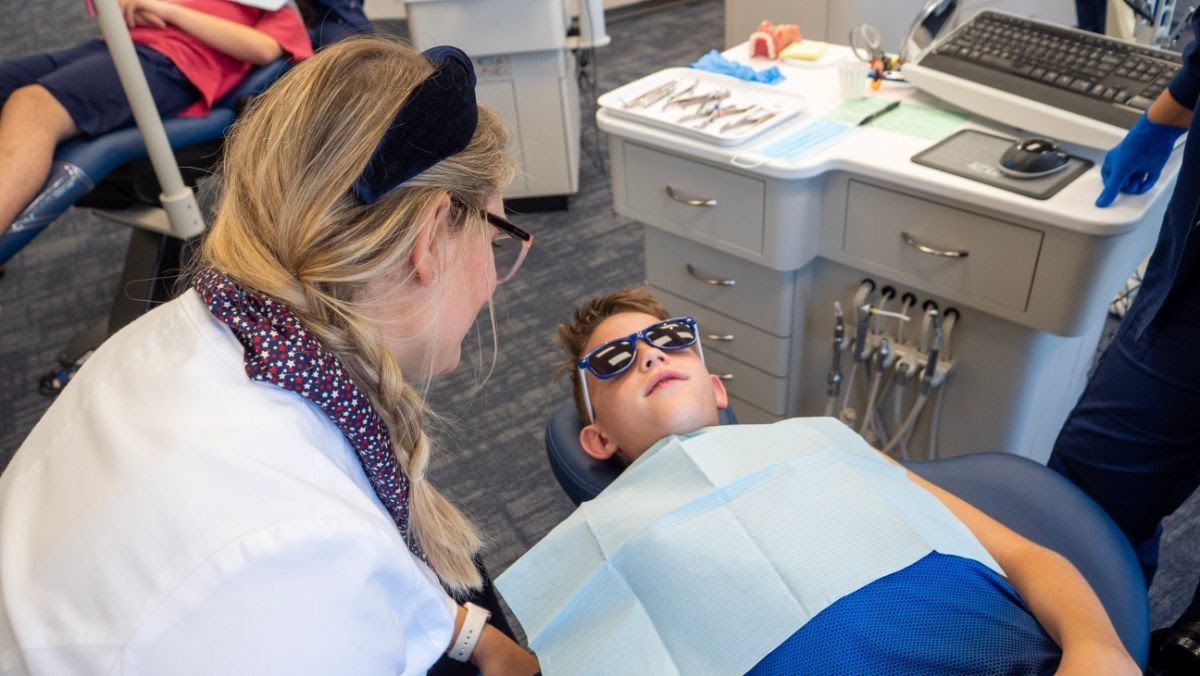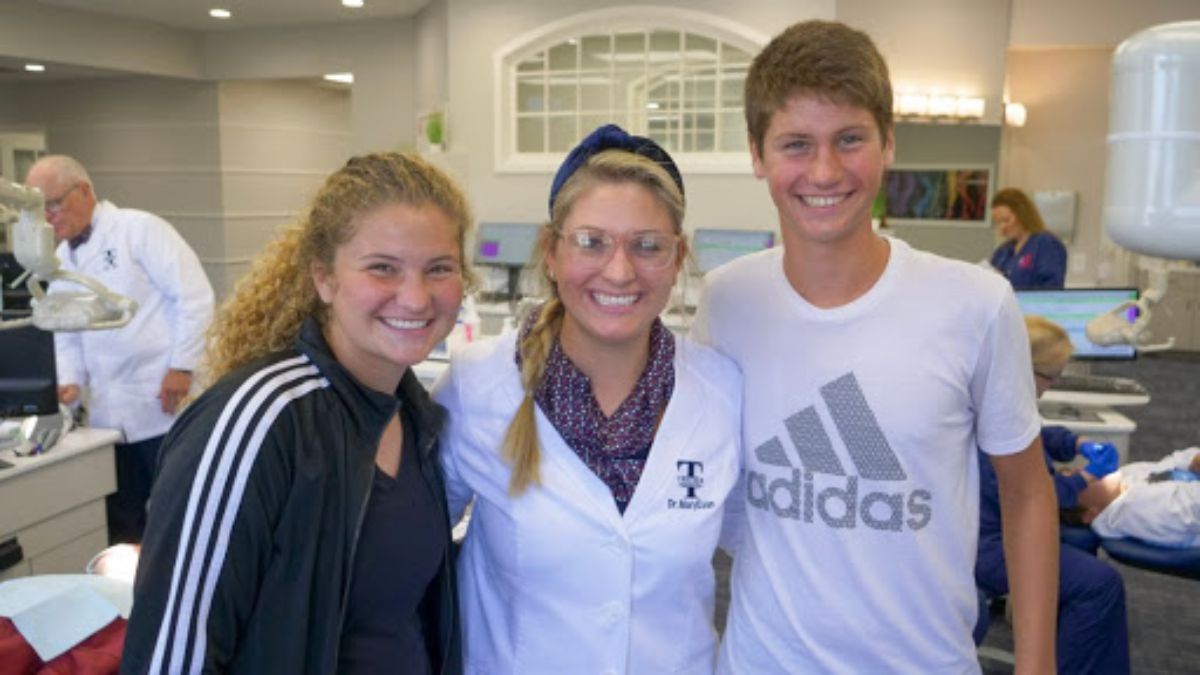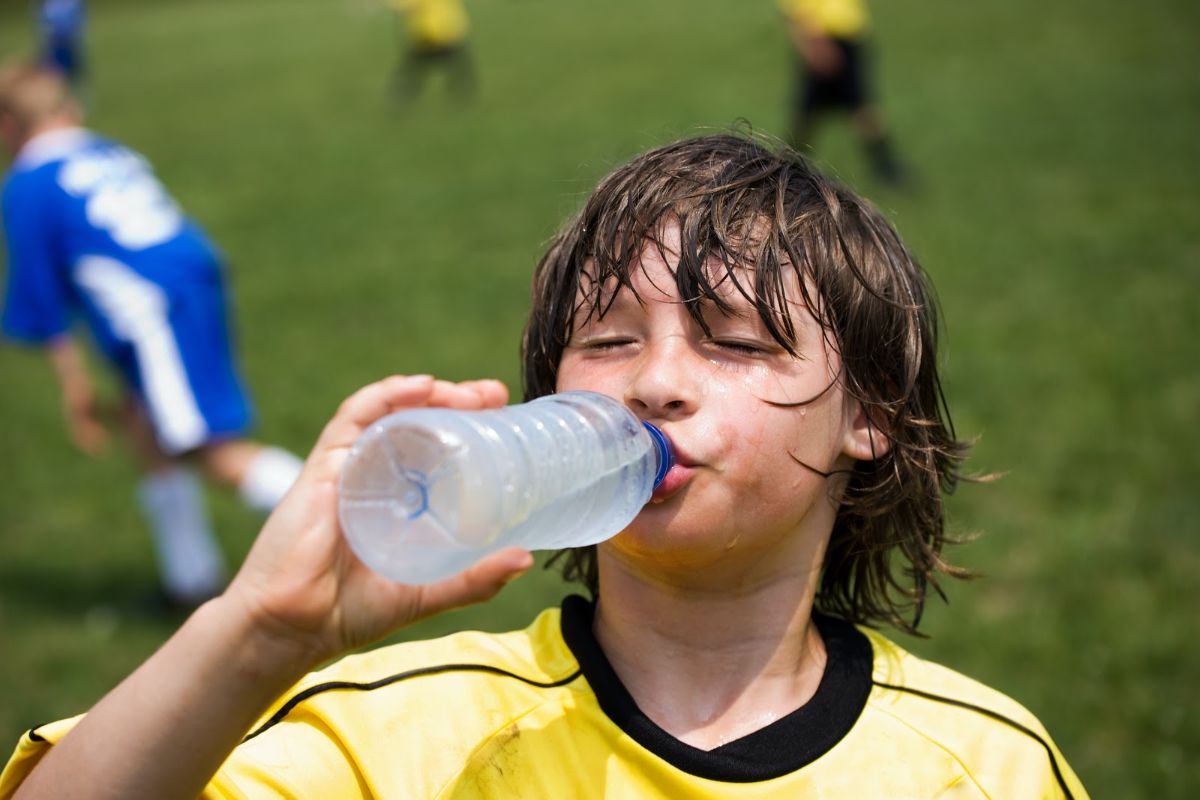Many of our Thacker Orthodontics patients play sports, either for their school, in their community, or just for fun. They’re often concerned that beginning their braces treatment will keep them on the sidelines for the season. If you’re an athlete, you may worry about playing sports in braces and how they will affect your performance or even keep you from playing.
This is a common concern, but the good news is that it’s unfounded! You can continue playing any sport you enjoy during your orthodontic treatment, but you must take precautions to keep your braces and mouth safe. We’re focused on protecting your braces from damage and making sure you don’t injure your teeth or gums. To learn more about how you can protect your braces and your mouth while playing sports, keep reading!
For the many children in our practice who are involved in contact sports, especially for those in braces, there is the additional worry that orthodontic appliances could cause damage to their lips and soft tissues. At Thacker Orthodontics, we recommend sports mouthguards for our athletic patients in Cincinnati and the surrounding areas. Mouthguards are the best way to keep mouths, teeth, and braces protected while in action on the court or field! Some patients prefer to use regular mouthguards, which also provides some measure of protection. We will discuss the differences between the two, when you should wear a mouthguard, and how to take care of one below.
Regular mouthguard vs. orthodontic mouthguard
Mouthguards are the easiest and most effective method for protecting a patient’s smile from damage while playing sports. This doesn’t just apply to high contact sports like football, hockey, or basketball, either. We recommend patients wear a mouthguard even if they play light-contact sports like baseball or volleyball.
While both regular and orthodontic mouthguards offer protection for a patient in braces, there are some essential differences to be aware of. Standard mouthguards are thermoplastic, which means they heat in your mouth and mold around your teeth. If a patient wears braces, the material will mold around the brackets, which can be an issue for a few different reasons. If the molding fits too well around the brackets, the force of a blow might knock the brackets right off the teeth, leading to a potential increase in treatment time and more orthodontic visits.
This kind of molding does not allow for the teeth’ movement, which is what orthodontic treatment is working to achieve! A non-orthodontic mouthguard can work against the patient’s orthodontic progress in this way. These mouthguards will also need to be replaced more often to keep up with the shifting of teeth throughout the treatment process.
Orthodontic mouthguards work differently. The material is a high-grade silicone that cushions the lips from bumping and rubbing against the teeth. This is an essential feature since it can be excruciating for patients to get a lip caught up in a bracket during a blow or a fall. This can cause swelling, and a patient may even need orthodontic help to release it!
They build orthodontic mouthguards with this in mind. They protect the brackets on the teeth and soften any hit they make take. To make room for the patient’s braces, they are slightly larger than regular mouthguards. However, they are just as comfortable to wear.
There are mouthguards explicitly made for athletes in braces available online and over-the-counter in some sporting goods stores. While these are a bit pricier than regular mouthguards, it is worth the extra cost for the comfort and protection they provide. While nothing can beat a customized orthodontic mouthguard, we would recommend these over the regular mouthguards and a standard mouthguard over nothing at all!

When should I wear a mouthguard?
For patients in braces who play a contact sport, wear a mouthguard at all times. That includes warming up during practice and throughout the game. Injuries can occur in the simplest of ways and are something to avoid at all costs. We recommended wearing a mouthguard just as frequently with non-contact sports, although obviously, the risks are not as high if a patient cannot do so.
Over-the-counter mouthguards
Shock Doctor
One of the most well-known brands, Shock Doctor mouthguards, are some of the best orthodontics mouthguards. Because they are made of 100% medical grade silicone and designed to conform to the upper brackets, they’re more comfortable than options and help reduce or eliminate cuts and scrapes. Shock Doctor mouthguards adjust to your teeth’ movement during treatment, and both strapped and unstrapped styles are affordable.
Vettex
If you’re in braces and regularly play sports, mouthguards with a lip guard are a huge plus. Lip guards will keep you from accidentally biting yourself but still allow you to speak clearly. Vettex mouthguards contain lip guards, and while this makes them a little bulkier, they’re still an inexpensive, lightweight option. However, they have a more generalized design and aren’t made specifically for athletes in braces.
Tapout
Tapout mouthguards are a newer, more diverse style with a distinct design promoting airflow. The comfortable fit makes them easy to talk with, and they can re-mold to your teeth multiple times as they change. Because they’re meant to adjust based on your current bite, athletes undergoing orthodontic treatment can use them, and those with no orthodontic appliances.

Thacker Orthodontics believes in keeping smiles safe
While mouthguards are the best way to ensure teeth stay safe even when taking part in a sport that might cause injury, we understand that damage can still occur. If a patient sustains damage to their mouth, teeth, or braces, we recommend calling our office as soon as possible to assess the situation and figure out the next step.
At Thacker Orthodontics, we do all we can to help our patients in braces continue their normal activities, including athletics. To learn more about safely playing sports while wearing braces, get in touch with us today, and we will be more than happy to discuss an appropriate orthodontic mouthguard!
